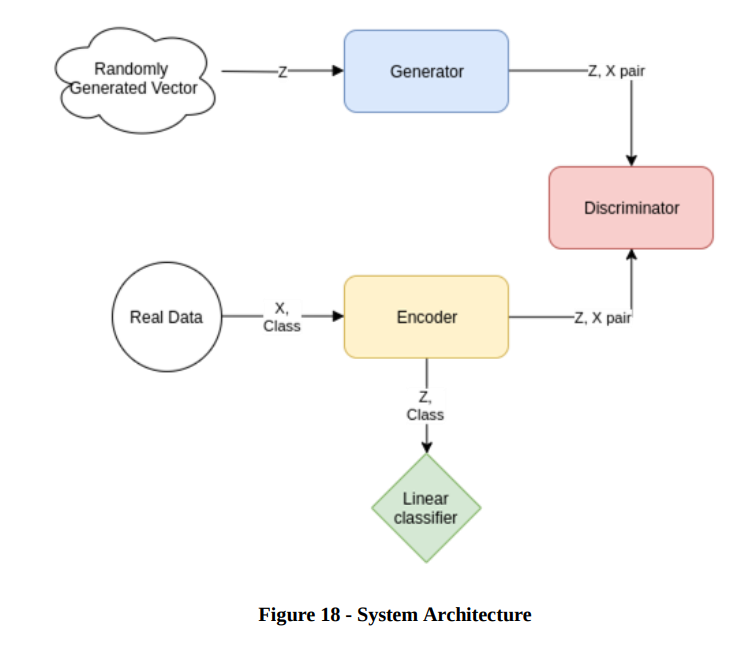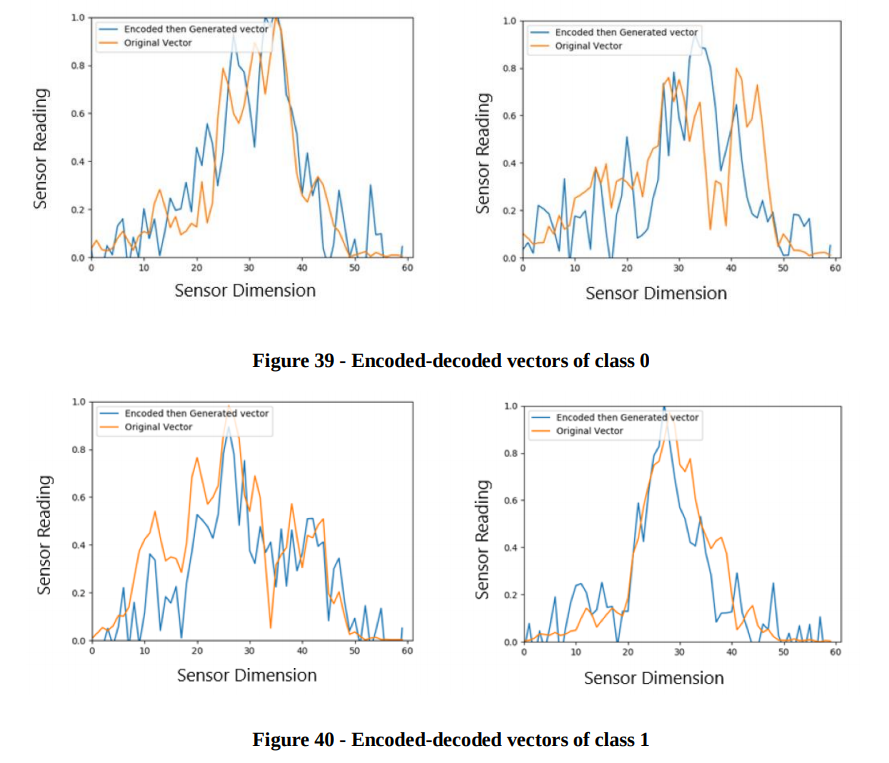BiDirectional Classifying Generative Adversarial Networks (BiCGAN)
BiCGAN was a research project completed as the capstone for my Masters in Information Technology from UNSW in 2019. My project supervisor was Dr Alan Blair.
BiCGAN consists of a modification to the existing BiGAN (or Adversarially Learned Inference) which involves the application of a Generator, Encoder and Discriminator network to generate synthetic data samples, by optimizing a minimax game. A novel Classifier component has been introduced, allowing the generation of data samples satisfying the properties of some given class.
In the process of implementing the new Classifier, several extensions were made to the BiGAN network structure by implementing new loss functions. Additionally, novel strategies for data generation policies were explored and reported on.
The BiCGAN was applied to the UCI Sonar Dataset. When tested with 10-fold cross validation, the BiCGAN was able to generate data samples that allowed a fresh neural network to be trained to achieve 73 % accuracy, compared to an 83 % control test that was achieved when using the original, unmodified data samples.
The BiCGAN was applied to the Credit Card Dataset, a heavily imbalanced dataset with a class ratio of approximately 500:1. The BiCGAN was able to generate data samples that allowed a fresh neural network to be trained to achieve a performance of 0.744 precision and 0.592 recall, compared to 0.869 precision and 0.612 recall that was achieved using the original, unmodified data samples as a control test.

